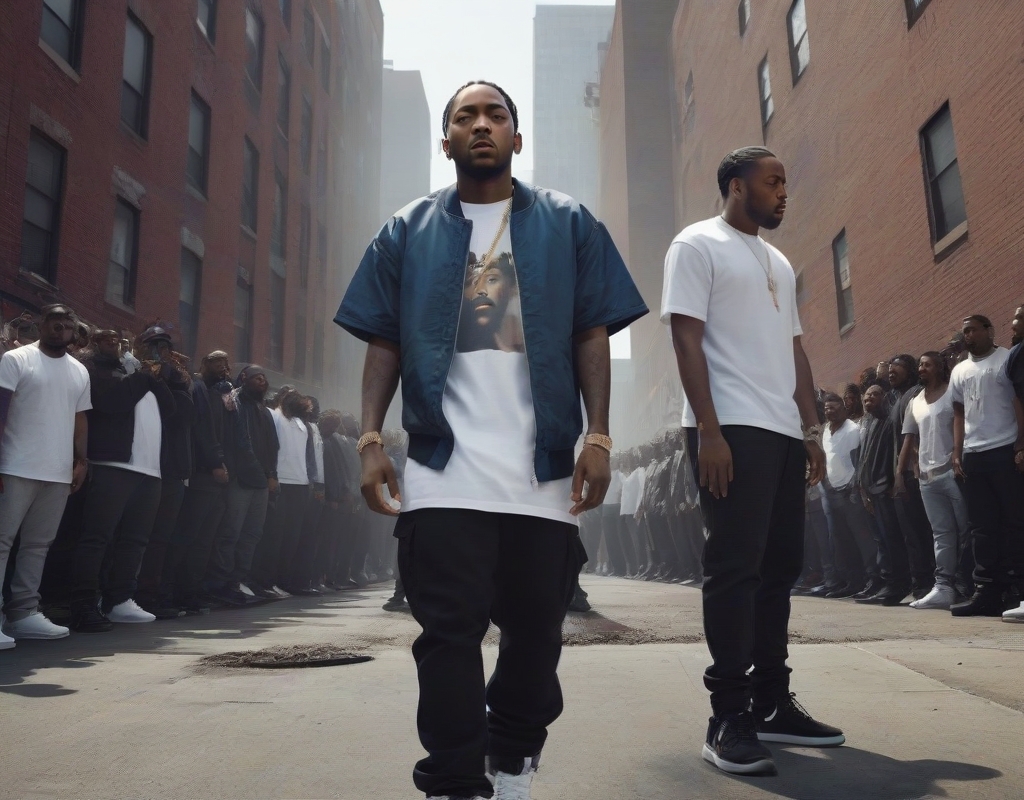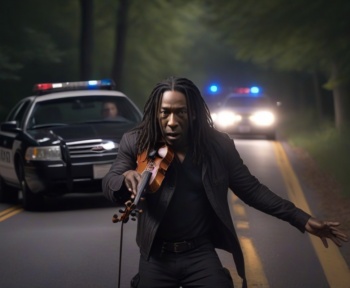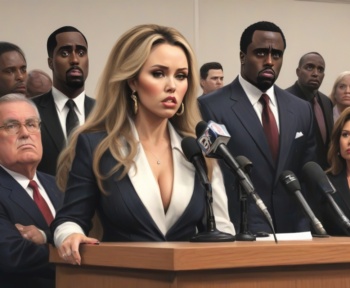The world of entertainment frequently grapples with scandals and controversies that elicit strong reactions. Recently, comedian Andrew Schulz found himself at the center of a heated debate following incendiary comments he made about rapper Kendrick Lamar. On his podcast, Schulz crossed boundaries that many felt were not just in poor taste but also harmful, suggesting he would physically dominate Lamar if they were in a prison setting. This comment, set against a critique of Lamar’s supposed hypocrisy for his collaborations with controversial artists, has resonated within the hip-hop community, inciting a wave of criticism against Schulz for his aggressive and insensitive rhetoric.
This incident did not unfold in isolation but sparked a broader response from the hip-hop community. Meek Mill was among the first to publicly stand up for Kendrick Lamar, using his platform to articulate the gravity of joking about such sensitive topics like race and sexuality. Meek’s outspoken defense underscores the larger racial dynamics at play and serves as a reminder that such subjects carry a significant weight, especially within Black communities.
Radio personality Peter Rosenberg also chimed in with harsh words for Schulz, condemning him for his remarks and accusing him of being detrimental to the culture he aims to critique. Rosenberg, highlighting the underlying issues in Schulz’s approach, extended his criticism to other media figures, including Charlamagne Tha God, emphasizing the role media personalities play in either perpetuating or challenging damaging narratives.
Adding to the mounting criticism, O’Shea Jackson Jr., the son of rap legend Ice Cube, denounced Schulz’s behavior as a deviation into unwarranted controversy and insensitivity. Jackson’s forthright condemnation adds another voice to the collective calling for greater accountability and respect in discourse related to race and culture.
This controversy taps into a broader debate over the role of comedy in society—where the line is drawn between humor and offensiveness. Historically, comedy has pushed societal norms and encouraged reflection on complex issues through satire and critique. However, the responsibility to navigate the boundary between incisive humor and offensive content has become a more delicate task in today’s culturally aware society. Research indicates a growing public sensitivity to jokes that touch on race and gender, suggesting a shifting landscape that comedians like Schulz need to navigate with caution to avoid alienating their audience and reinforcing harmful stereotypes.
The impact of such controversies extends beyond individual reactions, influencing the entire hip-hop culture, which is deeply intertwined with issues of authenticity, respect, and social commentary. The backlash against Schulz underscores the ongoing tensions between how mainstream media portrays hip-hop and the authentic experiences of those within the culture.
As actors within the media and entertainment industry weigh in, the roles of public figures and influencers come into sharper focus. People like Meek Mill and Rosenberg do not just defend individual artists; they advocate for broader cultural respect and sensitivity. Their responses guide the conversation toward more constructive and respectful discourse, reflecting broader expectations of those with public platforms.
Looking ahead, this incident may signal a moment for reflection and potentially for change in how comedians and entertainers approach topics intertwining race, culture, and humor. The controversy surrounding Schulz’s comments presents an opportunity for the entertainment industry to reassess how such narratives are framed and the implications they carry.
Moving forward, the dialogues emerging from this controversy emphasize the importance of sensitivity and respect in public discourse. They encourage a reevaluation of the impact that words can have, reminding us that cultural sensitivity and mutual respect are foundational for positive exchanges in the diverse landscape of modern entertainment.
In conclusion, the fierce defense of Kendrick Lamar by figures like Meek Mill and Peter Rosenberg not only underscores the unity within the hip-hop community but also stresses the ongoing need for cultural sensitivity in the entertainment industry. This episode serves as a crucial reminder of the power of words and the significant responsibility borne by those in the public eye. As the entertainment world continues to evolve, the principles of inclusivity and respect remain central to fostering a space where all can thrive without the risk of misunderstanding or harm.




